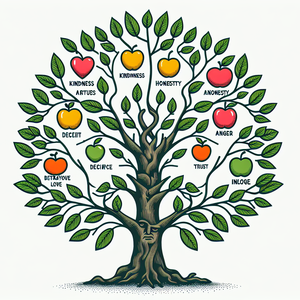Beyond the Numbers: The Human Side of Healthcare Data Analysis

At the heart of healthcare is the patient. While data analysts are trained to interpret complex datasets, their ability to empathize with patients and understand their unique needs is what ultimately drives effective decision-making. For example, when analyzing data related to patient readmissions, a data analyst must not only look at the numbers but also consider the underlying factors that contribute to these outcomes, such as socioeconomic status, access to care, and mental health. A compelling illustration of this is the case of a hospital that utilized data analytics to identify high readmission rates among heart failure patients. By collaborating with social workers and care coordinators, analysts discovered that many patients faced barriers such as transportation issues and lack of family support. Armed with this understanding, the hospital implemented targeted interventions, including home health visits and transportation services. This holistic approach led to a significant reduction in readmission rates, showcasing the power of combining data with empathy.
Effective Communication: The Bridge to Impactful Solutions
Another crucial aspect of the human side of healthcare data analysis is the ability to communicate findings effectively. Data analysts often work with diverse stakeholders, from clinical teams to executive leadership, each with their own priorities and perspectives. The ability to translate complex data into actionable insights that resonate with non-technical audiences is essential. For instance, a data analyst presenting a report on patient satisfaction scores must not only highlight trends but also tell a compelling story that underscores the importance of these findings. By employing visualization tools and clear narratives, analysts can foster a deeper understanding of the data, encouraging stakeholders to prioritize patient-centered initiatives. Moreover, communication extends beyond the presentation of data. Analysts need to be receptive to feedback and adaptable in their approaches. Engaging with healthcare providers to understand their challenges and insights can lead to more relevant analyses and actionable recommendations. This two-way communication fosters a culture of collaboration and shared responsibility, ultimately leading to improved healthcare outcomes.
Building Collaborative Teams
The integration of empathy in data analysis is not a solo endeavor; it requires collaborative efforts across various disciplines. Healthcare data analysts should work closely with clinicians, nurses, social workers, and other professionals to gain a comprehensive understanding of patient experiences. These collaborative teams can harness diverse perspectives and expertise, leading to more effective data interpretations and solutions. An example of this collaboration can be seen in the development of predictive analytics tools that identify patients at risk of developing complications. By integrating clinical insights with data analysis, healthcare organizations can design proactive care plans tailored to individual patient needs. This not only improves patient outcomes but also enhances overall healthcare efficiency.
Career Considerations in Healthcare Data Analysis
The evolving landscape of healthcare data analysis presents numerous career opportunities for individuals seeking to make a meaningful impact. As technology continues to advance and the demand for data-driven decision-making grows, the following considerations highlight the potential for career development in this field: 1. Continuous Learning: As healthcare technology and data analytics tools evolve, staying updated with new methodologies and software is essential for career growth. 2. Cross-disciplinary Skills: Gaining knowledge in clinical practices, public health, and behavioral sciences enhances the ability to analyze data more effectively and understand patient needs. 3. Networking Opportunities: Engaging with professionals from various fields within healthcare fosters collaboration and opens doors for innovative projects. 4. Certification Programs: Pursuing relevant certifications in data analysis, healthcare informatics, or public health can enhance credibility and expertise. 5. Leadership Roles: As healthcare organizations recognize the importance of data-driven decision-making, opportunities for leadership roles in data analytics are increasing, allowing for greater influence on patient care strategies. 6. Patient Advocacy: By focusing on patient outcomes and experiences, data analysts can play a crucial role in advocating for patient-centered care initiatives within their organizations.
As the healthcare landscape continues to evolve, the role of data analysts must embrace a more human-centered approach. By recognizing the importance of empathy, effective communication, and collaboration, healthcare data analysts can significantly impact patient care and outcomes. The journey from data to decisions is not just about numbers; it’s about understanding the stories behind the data and using that knowledge to foster better healthcare solutions. As we move forward, let us remember that the most powerful insights come not only from the data itself but also from the human experiences it represents. In doing so, we can ensure that healthcare data analysis transcends mere statistics, ultimately enriching the lives of patients and communities alike.
Healthcare Data Analyst
Hospitals, health insurance companies, and public health organizations
Core Responsibilities
Analyze complex healthcare datasets to identify trends and inform clinical decision-making.
Collaborate with clinical teams to interpret findings and develop actionable insights for patient care improvements.
Create visualizations and reports that communicate key metrics to non-technical stakeholders.
Required Skills
Proficiency in statistical software (e.g., R, SAS, or Python) and data visualization tools (e.g., Tableau).
Strong understanding of healthcare systems, terminology, and regulatory standards.
Excellent communication and interpersonal skills to effectively engage with diverse stakeholders.
Clinical Data Coordinator
Pharmaceutical companies, research institutions, and clinical research organizations
Core Responsibilities
Oversee the collection, management, and analysis of clinical trial data to ensure accuracy and compliance.
Work closely with clinical staff to ensure data integrity and adherence to protocols in research studies.
Prepare and present reports on clinical outcomes to stakeholders and regulatory bodies.
Required Skills
Familiarity with clinical trial processes and regulations (e.g., GCP, IRB).
Strong organizational skills and attention to detail to manage multiple studies and datasets.
Proficient in database management systems and data analysis software.
Public Health Data Analyst
Government health departments, non-profits, and research organizations
Core Responsibilities
Analyze public health data to identify trends in population health and inform public health initiatives.
Collaborate with epidemiologists and public health officials to develop strategies for disease prevention and health promotion.
Communicate findings to the public and policymakers through reports and presentations.
Required Skills
Strong analytical skills with experience in statistical analysis and modeling.
Knowledge of public health policies, epidemiology, and healthcare disparities.
Proficiency in data visualization tools and geographic information systems (GIS).
Health Informatics Specialist
Healthcare IT firms, hospitals, and health systems
Core Responsibilities
Design and implement health information systems to improve data collection and patient care processes.
Collaborate with IT and clinical teams to integrate data across various platforms and ensure interoperability.
Analyze health data to support clinical decision-making and improve patient outcomes.
Required Skills
Knowledge of health informatics standards (e.g., HL7, FHIR) and electronic health records (EHR) systems.
Strong problem-solving skills and experience in project management.
Understanding of clinical workflows and patient care processes.
Patient Experience Analyst
Hospitals, healthcare consulting firms, and patient advocacy organizations
Core Responsibilities
Analyze patient feedback and satisfaction surveys to identify areas for improvement in care delivery.
Collaborate with clinical and administrative teams to develop initiatives aimed at enhancing the patient experience.
Present findings and recommendations to leadership to guide strategic decisions.
Required Skills
Strong analytical skills with experience in survey design and statistical analysis.
Excellent communication skills to engage with patients and healthcare professionals.
Understanding of patient-centered care principles and healthcare quality improvement methodologies.


